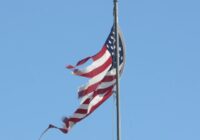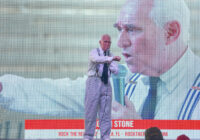Amid demonstrations on US college campuses, what do protesters and professors get wrong about political correctness?
The recent protests on US college campuses, particularly at the University of Missouri and Yale University, targeting insufficient actions to act against racism on the parts of respective administrations, have brought to the fore a complex and important set of questions for all Americans to consider. The rhetoric in both support of and opposition to the angered students has made straw men of the arguments on the other side. A more informed and nuanced discussion of the role of free expression in a community with rampant racial tensions could be a step toward understanding between the opposing viewpoints.
The actions at these universities across America have poured forth stories of the disheartening experiences of black students, both past and present. After a string of high-profile murders of African American men at the hands of police officers, the US again finds itself publicly acknowledging the racial tensions that have never truly gone away.
Addressing Race
However, the story many Americans have received over the past few weeks seems to have been twisted, with those students claiming to be victims of racism being questioned, without similar discourse around those who have been accused of actually creating victims and furthering racial tension. As Virginia Pasley has argued: “Maybe we shouldn’t worry so much about the students who ask that others consider their feelings and their histories, the ones who don’t want to talk to reporters, the ones who would like people to stop wearing Native American headdresses or blackface to Halloween parties.”
But the creation of safe spaces by protesting students at Missouri and the outrage of Yale students toward an administrator’s view on racially insensitive Halloween costumes have put free expression and political correctness in the titles of critical commentaries. Shockingly, few of these critics have acknowledged that students at Missouri may have good reason to distrust media outlets and their discourse.
Many Americans are uncomfortable with addressing race as such, and instead would rather drip of cowardice by denigrating political correctness; a heuristic for defending racial insensitivity. Indeed, these objections to safe spaces and political correctness often come from positions of privilege—those who have experienced no need for safety and for whom culture need not be corrected.
And so the type of political correctness found on the modern university campus is a public attempt toward empathy. Supporters view the wrongs of history as seeds that bring forth the perennial pain of inequality in American society. Political correctness is one step toward denying nourishment to those seeds, in hopes they will not bloom again. Without this empathic listening and a willingness to understand the realities of others, a person with privilege often cannot see their own advantages.
Urging politically correct expression, then, is one way of encouraging and displaying an understanding of the lack of socioeconomic privilege that comes with race, gender, ability, sexual orientation and other differences. It is a way of saying that society is at least trying to recognize hardships based on these immutable characteristics.
But these realities do not render the protesters infallible. Previously, political correctness dealt exclusively with social and private constraints: Violators of these norms would be shunned, boycotted, named and shamed. However, those who now seek to uphold a more socially just culture call for the imposition of legally or institutionally punitive measures on those who utter undesired expression. This is a fundamental shift.
At Odds?
American law is based on philosophical liberalism, which requires the accommodation of contrary views for consideration in the marketplace of ideas. While free expression is not absolute in the United States, protections remain broad. When striking down a statute aimed at banning cross burning, the US Supreme Court wrote in a 2003 case that the government can justifiably limit “those statements where the speaker means to communicate a serious expression of an intent to commit an act of unlawful violence to a particular individual or group of individuals.”
This “serious expression” of an intent to commit violence is a very specific standard for limiting expression. In 2011, the court found the Westboro Baptist Church protected by the First Amendment when protesting a soldier’s funeral with outrageous signage. It held that the group had the right to address public issues on public property in a peaceful manner. The police can, at times, punish an expressive act for the potential results or context of that speech, but vanishingly rarely for the content thereof.
Is our legal tradition at odds with state-enforced political correctness?
UCLA Law Professor Eugene Volokh seems to think so, objecting to the University of Missouri police’s request for the reporting of “hurtful” speech. University of Chicago Law Professor Geoffrey R. Stone would agree, arguing that no university should take positions on matters of substance. One Missouri professor has accused the student protesters of having an “a la carte” approach to the First Amendment. So while supporters of these student protesters assert that free expression does not equal the freedom to bully, outraged detractors view their political correctness as a denial of legitimate political discourse, and some have gone to hyperbolically compare it to fascism.
The critics, however, have lost sight of their own context. Almost all people have a list of topics not worthy of public debate. Take miscegenation as an example: Most modern-day Americans would be troubled by a university giving prominent speaking time to an individual wishing to convince others of its immorality. In classes, we would be troubled if our children were “taught the controversy” that inter-racial marriage may or may not be morally defensible. We do not need to actively censor these ideas; a vast majority feels that society has resolved these issues and moved beyond these discussions.
But this is generational. Many Americans felt differently about miscegenation only three generations ago. Thus, with present college students, what many of them find unworthy topics of serious public discourse (racially insensitive Halloween costumes, for example), older commentators find to be legitimate political issues about which reasonable people may disagree.
The modern challenge of racism is that few people are consciously or actively engaged in overt discriminatory practices that lead to evidenced subjugation of those who are not straight, white males. One could sardonically note that blacks just so happen to be arrested, jailed and killed at astronomical rates, for example. But even if racism is less legally identifiable, it is no less important to combat. Advocating for politically correct expression sets the tone of acceptable discourse in society. However, involving the machinery of the state to compel socially responsible expression creates a conflict between social justice and individual liberty. Resolving that conflict in favor of social justice would require a wider recognition of the American legal system, which is largely based on individual liberty.
First Amendment
The institution of American law, of course, has been created, shaped and maintained nearly exclusively by white males, many of whom view their job as simply calling balls and strikes. This is a problematic claim that one can and should hold inherently objective views, with no subjective reflection of one’s experiences. There rarely exists the recognition that a biased strike-zone renders the mere calling of balls and strikes an act of bias itself.
Thus, yelling “First Amendment!” at students of backgrounds when they demand safe spaces or institutional condemnation of racist expression comes across as tone deaf to the greater challenge of re-understanding what is fair for all in America. Many of the students making headlines have moved beyond the colorblind fallacy, understanding that race-blind policies entrench the structurally unequal status quo.
Yet here lies the nuance: While the First Amendment was in fact written entirely by white males, many of whom owned slaves, and has been almost exclusively interpreted and applied by white males, it is not inherently void. Rendering it so would be fallacious. It can be considered voidable, and the context of its creation should be understood when assessing it. Such an assessment should subject the First Amendment and the US Constitution itself to debate on college campuses, full of vehement, caustic and sometimes unpleasantly sharp criticisms. Students should be uninhibited, robust and wide-open in their discussion of these documents, so that all races, genders and experiences have a voice.
Indeed, an inclusive discourse, where subjective experiences are expressed, where hot emotions clash with cold reason, would be most fitting for the First Amendment. Because that is all it asks for.
The views expressed in this article are the author’s own and do not necessarily reflect Fair Observer’s editorial policy.
Photo Credit: Pete Spiro / Shutterstock.com
 We bring you perspectives from around the world. Help us to inform and educate. Your donation is tax-deductible. Join over 400 people to become a donor or you could choose to be a sponsor.
We bring you perspectives from around the world. Help us to inform and educate. Your donation is tax-deductible. Join over 400 people to become a donor or you could choose to be a sponsor.
Support Fair Observer
We rely on your support for our independence, diversity and quality.
For more than 10 years, Fair Observer has been free, fair and independent. No billionaire owns us, no advertisers control us. We are a reader-supported nonprofit. Unlike many other publications, we keep our content free for readers regardless of where they live or whether they can afford to pay. We have no paywalls and no ads.
In the post-truth era of fake news, echo chambers and filter bubbles, we publish a plurality of perspectives from around the world. Anyone can publish with us, but everyone goes through a rigorous editorial process. So, you get fact-checked, well-reasoned content instead of noise.
We publish 2,500+ voices from 90+ countries. We also conduct education and training programs
on subjects ranging from digital media and journalism to writing and critical thinking. This
doesn’t come cheap. Servers, editors, trainers and web developers cost
money.
Please consider supporting us on a regular basis as a recurring donor or a
sustaining member.
Will you support FO’s journalism?
We rely on your support for our independence, diversity and quality.






